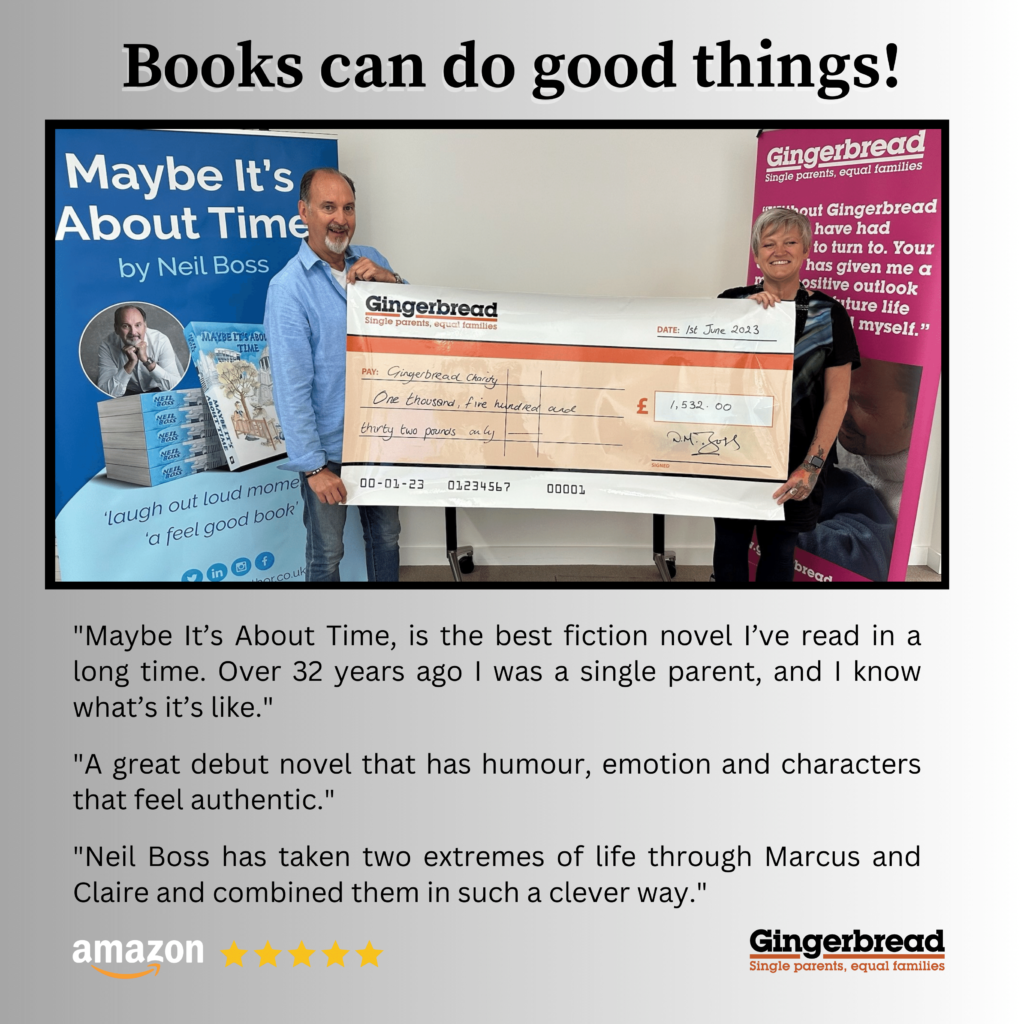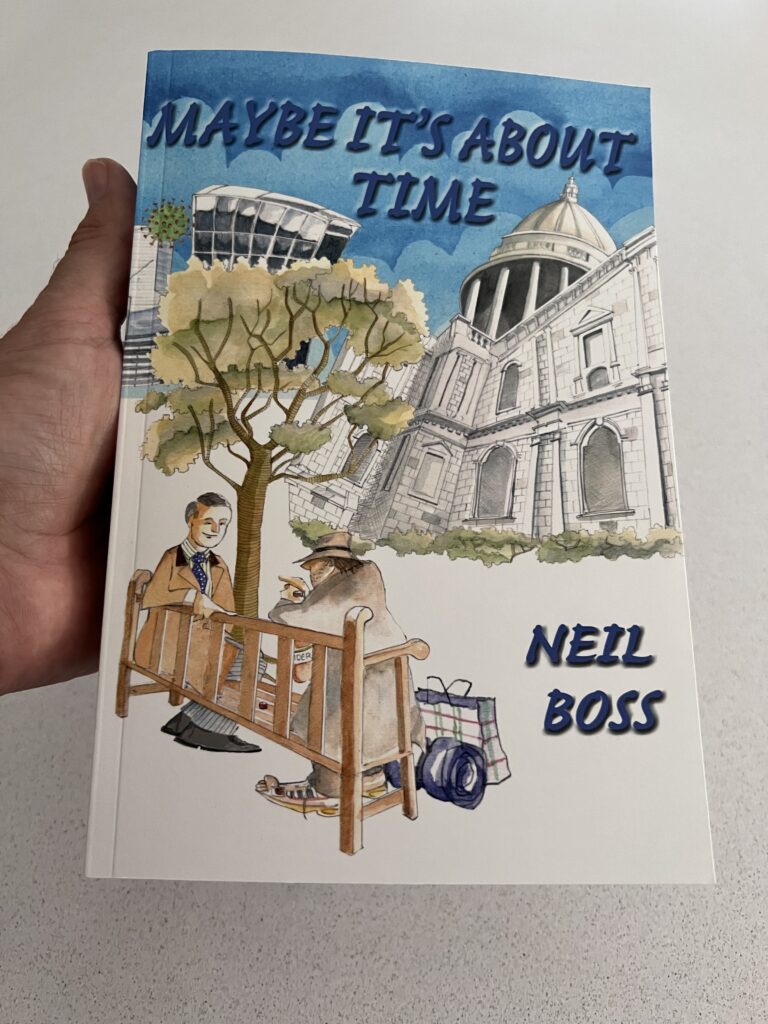

When did you first realize you wanted to be a writer?
When I was fifteen, my English teacher wrote in my school report
“Highly articulate and with considerable insight. His writing verges on brilliance. A career beckons.”
Unfortunately, I never listened to him and, being risk averse, took a more pragmatic (and boring) path to financial security. All of the time throughout my time in the corporate world, I felt like a fraud, never really fitting in and not taking my responsibilities very seriously. It was always in the back of my mind that perhaps I had a talent that hadn’t been fulfilled. To not try and realise it would be a waste. Retirement (and lockdown) gave me that opportunity and I am really proud of my book. I think I have proved something to myself that perhaps I should have done a long time ago.
As a child, what did you want to do when you grew up?
Be a marine biologist. I was seduced as a teenager by ‘The Undersea World of Jacques Cousteau’ on TV, did a degree in it before realising I was totally unsuited to science and giving it up. Spent the next forty years drifting aimlessly through corporate life before finding something I truly loved. Writing.
What do you think makes a good story?
The development of interesting and plausible characters that readers can relate to and involve themselves in. Readers of ‘Maybe It’s About Time’ seem to love the three central characters and how the plotlines are interwoven around them. Some readers have described them as becoming friends which I take as a massive compliment. Some readers have described my book as an emotional rollercoaster and, although it’s a long novel, it holds the attention of the reader to the end. I try to mix things up, satire, humour, pathos and a little tear here and there too!
How do you develop your plot and characters?
I would love to say the words just come flowing out of my fingertips but that would be a massive fib. I start with an overall plan with the main storylines and break this down into chunks (which eventually become chapters). I have to write sequentially. I don’t have the talent to write different chapters and then try to knit them altogether. I am always looking at ways to plant clues or messages in earlier chapters that presage what will be coming later. Some readers spot them but some miss them altogether. I’m a bit of a perfectionist so plots, scenes and characters may get written and rewritten several times before I’m happy to move on.
How long did it take you to write this book?
From typing the first words to having a printed copy in my hands, 18 months. I got to a first manuscript in 10 months but it then required some very strong editing ( a structural edit and a line/copy edit) before it even entered the production process. I had a wonderful editor who gave me plenty of valuable advice and I’ve learned so much through the process that will speed up the sequel.
How did you come up with the title for your book?
It’s a line which comes up several times as dialogue in the novel. The main character, Marcus Barlow, is desperate to change his life. He feels trapped in a vicious circle by his wealth and a fear of change. It is the suggestion by a number of characters that ‘Maybe It’s About Time’ that finally precipitates his actions in the final chapter that will finally change his life.
Did you think it was a risk setting your novel during the Covid pandemic?
At the time, I didn’t. I started writing the book during the first lockdown as a means of keeping myself occupied and sane! I realised we were all going through unprecedented times and experiences and wanted to capture them as the backdrop to the main storyline. ‘Maybe It’s About Time’ is not a Covid novel, it is the backdrop. However, reading some of the reviews, it has become clear just how traumatic and upsetting this time was for many people. Fortunately, the strength of the characters and the storyline carries the day.
What’s your favourite and least favourite part of publishing?
I have learned so much about publishing since I embarked on the journey in 2020. I am lucky that I don’t write for the money (not that I make much!) so I didn’t need to go down the traditional agent/publisher route. I never realised the stranglehold they have on the industry and how much talent gets suffocated on the whim of an agent. Self-publishing offers indie authors that route but comes with a lot of pitfalls. I never realised just how difficult it would be doing all the marketing and promotion myself. It’s very frustrating knowing you have a fantastic novel that holds its own against many others on retailers bookshelves but just needs one break. Maybe this interview is it! Deciding to give all my royalties to charity and handing over a cheque last month was the best part, knowing that all my effort will help someone less fortunate than me.
How do you use social media as an author?
Until I published my book in 2020, I never needed to use social media so it’s been a baptism of fire but I have come to love it, especially Twitter! It’s essential for indie authors to be active on social media and, who knows, it might lead to something bigger? I’ve done two blog tours which have gone really well, it’s resulted in some amazing reviews and raised awareness of my book. I can’t say it has increased sales massively but it can only do good. Anyone becoming an indie author needs to start getting proficient with social media. I’ve also met some great social media ‘friends’ too!
Have pets ever gotten in the way of your writing?
Absolutely not! My dog, Mena, was at my side through every single word of my novel. I dedicated the book to her for truly being my best friend and confidant.
@iamneilboss